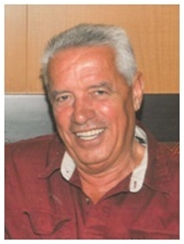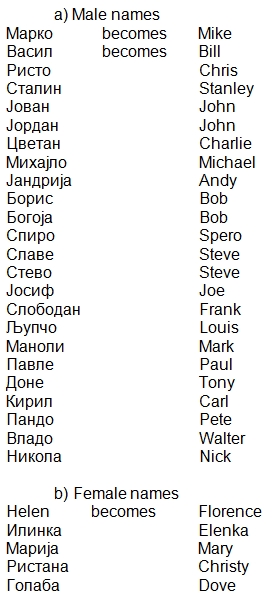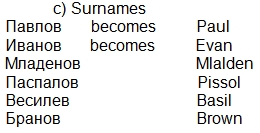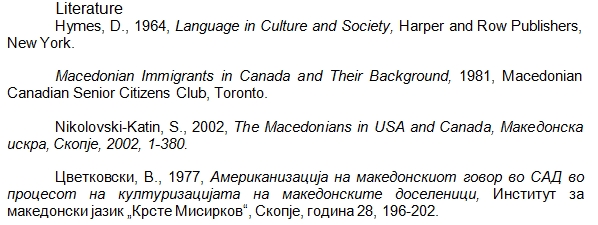
|
|
||||
|
|
||||
|
|
||||
|
|
Creolisation of the Macedonian Speech of Macedonian Immigrants in Canada, Especially of those from Aegean Macedoniaby Slave Nikolovski - Katin The first processes of migration from Macedonia to overseas countries started at the end of the eighteenth century, owing to economic, political and other reasons. The waves of emigration were more intensive after the Ilinden Uprising in 1903, the Balkan Wars and the partition of Macedonia, and in the period between the two World Wars. However, these processes became more pronounced after the Second World War, especially after the Civil War and the defeat of the Democratic Army of Greece, on whose side the Macedonian people from Aegean Macedonia fought in the hope of achieving their national and social rights and freedom. After arriving in Canada, the Macedonian immigrants made efforts to adapt to the new environment and to involve themselves in the cultural events in the society. However, the English language, which is the basic characteristic of the Canadian culture and social life as a whole, was a big problem for them. The Macedonian immigrants had difficulties with the English language, both because they did not have an opportunity to learn the language and because they did not have contact with English-speaking people. Actually, Macedonians did not have their own state de jure and de facto from 1912 to 1945. They achieved their rights of freedom and independence after the Second World War, with the proclamation of the Socialist Republic of Macedonia with the framework of the former Federal Republic of Yugoslavia, after the re-establishment of the independence of the Macedonian Orthodox Church, and especially in 1991 when the Republic of Macedonia became an independent and democratic state. However, the destiny of the Macedonians from Aegean Macedonia differed from others. They did not have any opportunity to go and study at Macedonian schools, as their mother tongue was prohibited in their native country. They experienced democracy and freedom not in their native country but in the overseas countries, Canada, the United States of America, Australia and other countries, where they are able to speak and learn Macedonian, to have their own Macedonian schools, churches, clubs, folklore groups, literary and other associations, radio and television, newspapers, etc. This paper considers the characteristics of the language that Macedonian immigrants use in Canada and the creolisation of Macedonian speech, especially in the area of Metropolitan Toronto, Ontario. The peculiarities of that "separate language" which is used by Macedonian immigrants appear and start with the process of creolisation of Macedonian speech and the entry of English words, whose number increases from day to day. It is of interest to mention that the Macedonians in Toronto came from different places and societies from all parts of Macedonia. The greatest number of them are from Aegean Macedonia, especially from the districts of Lerin, Kostur, Voden, then from the districts of Prespa, Bitola, Ohrid, Struga and other parts of the Republic of Macedonia and Pirin Macedonia, whose number has reached over 100,000. The greatest number of them came with a low level of education, being laborers, while a small number were educated. Therefore, their speech carries all the peculiarities of the region from where they came, then of the social environment to which they belong, and of the period in which they have lived in the new environment in Canada. After arriving in Canada, the Macedonian immigrants began to learn English, which has few similarities with the Macedonian language. Except for a very small number of Macedonians who emigrated to Canada after the Second World War and who knew English a little, for the greatest part of them English was a new language, and because they did not speak English at the beginning, they had some difficulties at work and in everyday life. Due to the above, a great number of newcomers of Macedonian descent, especially men, began to work in restaurants. Of course, because they were little educated, they worked as helpers, dishwashers and in other hard jobs, where they did not have contact with the outside world and English speakers. On the other hand, the women usually found jobs in the textile industry where a great number of workers and even managers were Macedonians or from other Slavic speaking areas. Thus, the newcomers communicated at work with older immigrants and easily picked up a number of English words. Otherwise, it was not hard for them to find a job in Canada, because it was estimated that in Toronto alone there were a great many restaurants that were owned and operated by Macedonians. Quite a number of service industries associated with the restaurant business, textile and metal industries are also owned and operated by Macedonians. In addition, thousands of Macedonians at present are engaged in the various professions such as doctors, lawyers, engineers, writers, teachers, economists, actors, performers and teachers of music. The creolisation of Macedonian speech in Canada, as well as in the United States of America, Australia, Great Britan, New Zealand and other English-speaking countries, is not due to the needs of making conversation with the Anglo-Saxon world which uses English as its means of communication, but it is a process which starts after the arrival of the immigrants in the new environment. The process of creolisation of Macedonian speech in Canada, especially in the case of immigrants from Aegean Macedonia, starts with the adoption of nouns. English nouns are a very important part of the speech of the newcomers. Usually, the nouns are adopted morphologically and their pronunciation is very close to English. The following are the most characteristic groups of words adopted in the everyday language of the Macedonian immigrants. 1 At the beginning, the Macedonians learn the numbers. That is maybe
because counting has got something in common with the 'magic' force
of the dollar, for which most of the immigrants came to Canada. Usually,
the immigrants do not have problems with the numbers, except with the
numbers 3, 13, 30, 300... It is estimated that the difficulties in pronunciation
of these numbers is because the phonemes ' 2. The Macedonian immigrants in Canada quickly learn the English nouns connected with traffic and transportation. They are the following: car, bus, street car, ticket, highway, parking lot, traffic light, traffic sign, lane, stop sign and others. It should be mentioned that the greater part of these nouns are not found in their Macedonian vocabulary, and therefore such words become part of the immigrants' everyday language. Macedonian suffixes and prefixes are added depending on which category the noun belongs to. The following expressions are used:
3. In the process of creolisation, the following nouns connected with the house and parts of the home are adopted in the immigrants' vocabulary: The noun 'kitchen' is the most familiar word of the Macedonian women. That is probably because the kitchen in some of the villages was not a part of the house, but was an annex to the house and was used especially during the summer. In addition, the following nouns are a part of their everyday language: room, living room, sitting room, building, basement, garage, carpet, yard, floor, flat, bathroom, cupboard, veranda and others. These are some of the expressions that the immigrants use:
4. Creolisation of Macedonian's speech is also present in the nouns connected with food and nutrition, such as: beefsteak, chicken, toast, fruit, juice, pork chops, hamburger, cheeseburger, lunch, using them in the following expressions:
5. The most characteristic process of creolisation of Macedonian speech in Canada is the case of changing personal names and surnames to Canadian ones, or as it is widely known, the American version, wherever possible. Because the English-speaking people have difficulties in pronouncing the Macedonian (Slavic) names, the Macedonian immigrants usually change their names as follows:
d) Surnames relating to places and other names: 6. The process of creolisation of the Macedonian language in the field of sport is also present in Canada. There are many nouns from sports games that are borrowed from English, such as: bowling a bowler, hockey, golf, soccer club, outsports, skiing, competition, tournament, and the like. Thus, the Macedonian immigrant in Toronto will say:
7. There is creolisation of the Macedonian speech of different words of events and the following nouns are used: office, book, bank, club, picnic, hall, party, boyfriend, girlfriend, present, stage, publication, airport, City Hall, Scientific Center. Thus the immigrant will say:
8. There are also a number of English verbs adopted in Macedonian speech, such as: to drive, to shop, to dance, to clean, to know, to like, to thank, to wash, to phone, to call, to rent, and the like. These verbs are used in such cases:
9. There are a number of expressions which are adopted in the language of the immigrant, such as: Thank you; I do not know; Do not worry; Oh, yes; Oh, no; Sure; Excuse me; Please; Sorry, and others. These expressions are used in some of the cases:
10. This is a telephone conversation between two Macedonian ladies
who do not work but look after their grandchildren:
It should be mentioned that the creoled language of the Macedonian immigrants in Canada is mostly used by the first generation, while the second and third generations are mostly bilingual. The generation which is born in Canada clearly speaks Macedonian till the first grade in the English schools. After that, English becomes the first language, while Macedonian in many cases is only spoken as a second language. Usually, the second generation speaks their Macedonian with an English accent, and of course the range of their vocabulary is limited.
Copyright 2015 Source: www.pollitecon.com |
















